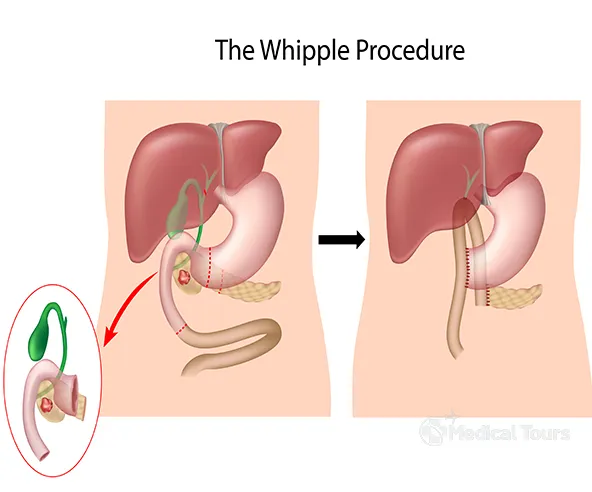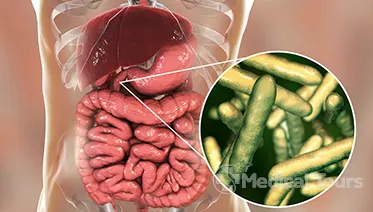Not anyone has commonly heard of a Whipple surgery and Whipple procedure, but this medical treatment is quite effective for a healthy and disease- free pancreas. Whipple procedure is a surgery that was named according to Dr. Allen Whipple, one of the most well- known surgeons who first introduced and performed this kind of surgery. It is considered that Dr. Whipple's surgery is a ground- breaking discovery in medical history that has not only helped in the successful treatment of pancreatic cancer but has also helped in keeping the pancreas free from carcinogenic conditions.
In medical and oncological sciences, there are two broad types of Whipple procedures:
But there is one common thing in both these types of processes. Both the above types of Whipple surgery include the removal of some common things. Some of them are as follows:
After performing the Whipple surgery, your surgeon will remove the above organs and then will eventually join up the rest portions of the digestive system.
Whipple surgery is the most common recommendation of gastroenterologists and health care experts to a patient who has developed pancreatic cancer. Whipple procedure of surgery is used to treat any severity of pancreatic cancer, mostly when the cancer develops at the tip of the pancreas. Apart from pancreatic cancer, Whipple's method is also used to treat some other serious pancreatic disorders. Some of them are listed here as follows:
Whipple's Disease is a type of disease that is cause by a species of bacteria, scientifically known as Tropheryma whipplei that not only damages the gastro- intestinal tract of the body, but also poses severe health impact on the body and your overall health. Whipple's Disease can also damage some of your major organs such as heart, kidneys, lungs, bone joints, brain, eyes, and skin. In fact, in some cases, Whipple's Disease can be severe and can belief- threatening too if neglected and left untreated for a long time because this deadly disease does not allow your body's metabolic system to absorb enough nutrition from the food that you have in your regular diet.
It has been said by many physicians and other health care experts that one might develop Whipple's Disease if there is a presence of a genetic trait of this disease in the patient's family history. This disease is common among aged individuals, particularly those belonging within the age group of 40 to 60. This disease can most commonly occur among men compared to women. Whipple's Disease can also occur to those people who dwell in areas where there is lack of proper sanitation and fresh water irrigation. It is quite difficult to get rid of Whipple's Disease once it takes up a severe condition.
There are certain common symptoms of Whipple's disease that will become noticeable once the disease is present in the body. Some of those symptoms are given below:
Apart from the above symptoms, there are some other symptoms that are quite rare, but if these symptoms start to appear in the body, then these are indications that the disease is becoming lethal. Some of the severe symptoms of Whipple's Disease are as follows:
Before performing the Whipple's procedure, it is crucial to talk to your surgeon and concerned health care experts and discuss thoroughly about your health complications, so that the surgery does not increase any kind of risk factor for you. Prior to the Whipple's procedure and surgery, one must make sure to discuss all the necessary steps that should be taken before the surgery. Some of the most important steps to be followed prior to the surgery are listed here as follows:
Other than these prior preparations, there are certain other preparations too that need to be taken on the very day of your surgery. Some of those prior preparations are listed below:
Though the Whipple procedure is quite a safe one, but is a long and an extensive surgery. So, there are certain risk factors and some types of complications that are associated with Whipple's surgery. Some of the risk factors are listed here as follows:
These are some of the most severe health complications after Whipple's surgery. If you come across any of these above conditions, consult your health care expert as soon as possible.
The cost of Whipple's surgery in India varies from state to state and depends on several factors, such as the way the surgery is performed, the type of pancreatic condition the patient has, hospital and, surgeon's experience, etc. On an average, the cost of performing Whipple surgery in India starts at USD 7,800 (INR 6,18,357) and can go up to a maximum of USD 9,500 (INR 7,53,127).
The time required to recover after having a Whipple's surgery, on an average will take almost 6 weeks, but the exact time will absolutely depend on the condition of the patient and the severity of the pancreatic condition.
The long term survival rate after Whipple's surgery will depend upon a number of factors such as age of the person, the condition of health after Whipple's surgery, and the severity of the disease or the cancer the patient has been diagnosed with.
In India, if a person is reluctant to perform Whipple's surgery, then there are some other options of surgery too, such as:
It is easier to perform Whipple's surgery in India because this surgery in a country like India is quite cost- effective and all the related medical expenses to this surgery are easy to afford in India.

